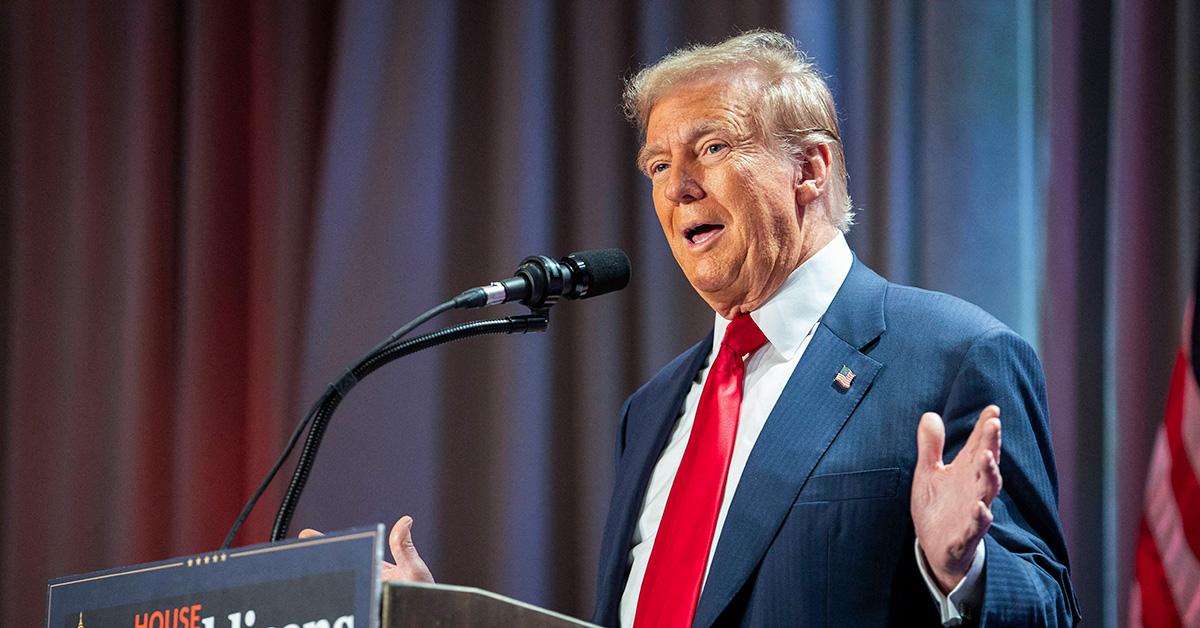Trump Might Try to Self-Pardon, but It's Unclear What Would Happen If He Did
The answer is actually fairly complicated.
Published Dec. 2 2024, 2:17 p.m. ET

It's fair to say that Donald Trump is planning to do all sorts of norm-busting when he returns to the White House for his second term as president. Among the broadest authorities in the president's purview is the pardon power, which allows him to pardon criminals who are sentenced under federal law.
Given that Trump himself is a convicted felon, and faced several other indictments, many have wondered whether Trump might try to pardon himself if he returned to the White House and have also wondered whether that's allowed. Here's what we know.

Can Trump pardon himself as president?
There's no clear answer to whether a president can pardon themselves, as it's never been tried before. While the pardon power is one of the broadest at the president's disposal, it is not unlimited, and there are certain precedents that might limit what he is able to do. He is not allowed to pardon himself in furtherance of committing a crime, for example.
If Trump were to attempt to pardon himself, the question would likely go before the Supreme Court, which would likely be the final arbiter on whether he has the Constitutional power to do so. Given how Trump-friendly the court has proven to be, the outcome of that case would be very much in doubt, but it's certainly not a power he's guaranteed to have. More importantly, though, the question of whether he can pardon himself may be moot.
Trump is unlikely to try to pardon himself.
Although whether or not he has the authority to pardon himself is very much up in the air, there's actually very little reason to think that he will try it. The only charges that Trump has been convicted on originated in New York State, and there is long established precedent that makes it clear the pardon power does not extend to state-level offenses. He might try to pardon himself in the New York case, but he's unlikely to succeed, and his sentencing has been suspended anyway.
Trump has been indicted on a number of federal charges as well, but those charges were part of Department of Justice investigations, and they are being dismissed before Trump enters office. Trump was never convicted in any of those cases, and as a result, there are no pardons to issue. What's more, the investigations themselves are going to go away without Trump needing to use the pardon power at all.
So, while Trump may have been in criminal hot water just a few months ago, actually winning the election means that he won't have to worry too much about whether he's a felon. Of course, it's still possible that, after he leaves office in 2028, he could be sentenced in the New York case.
It's impossible to say what the world will look like by then. For now, though, Trump probably won't need the pardon power in order to dispose of the various criminal cases and investigations against him, at least for the most part.